COVID-19
Judge agrees with Tamara Lich’s counsel that saying ‘hold the line’ was not a call to insurrection
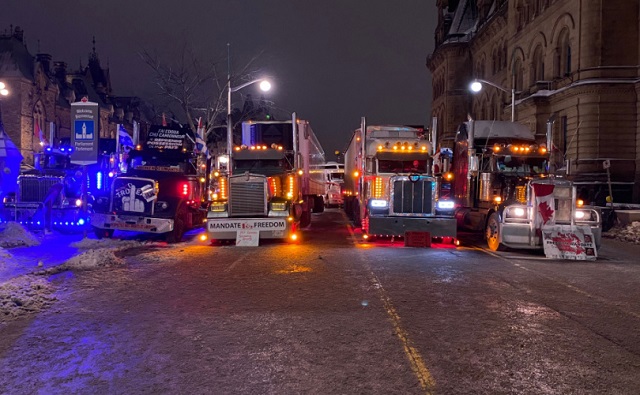
From LifeSiteNews
What the Freedom Convoy leader told truckers in the Ottawa anti-COVID jab mandate protest ‘could mean, stay true to your conscience and convictions,’ Judge Heather Perkins-McVey said on Day 29 of the trial
During the trial of Freedom Convoy leaders Tamara Lich and Chris Barber earlier this week, Lich’s legal counsel argued that her use of the rallying cry “hold the line” during the 2022 protests did not imply she was calling for people to engage in illegal activity.
Attorney Eric Granger said that his client had continually called for peaceful protests in her public statements, noting her social media presence as proof.
Granger then said that Lich’s “hold the line” statement could be interpreted in many ways.
Judge Heather Perkins-McVey agreed, saying, “It could mean, stay true to your conscience and convictions. “
On February 17-18, 2022, video footage emerged of Lich and Barber’s arrest by members of the Ottawa Police Service (OPS).
While being led away, Lich told truckers in the Ottawa anti-COVID jab mandate protest to “hold the line.”
On Day 29 of the trial, which took place on Tuesday, Granger again made it a point to the court that Lich and Barber should not be considered co-conspirators in their criminal trial.
As noted in a Day 29 trial update by The Democracy Fund (TDF), which is crowdfunding Lich’s legal costs, Granger referred to the court a video posted by Lich on February 16, 2022, in which she “appealed for love, respect, and prayers for police officers.”
“Drawing attention to a text exchange between Lich and Barber on February 17, 2022, Granger highlighted apparent disagreements between them regarding the statements made in the video,” the TDF noted.
“He submitted that this suggested Lich and Barber were not engaged in a common unlawful purpose, as required in the Carter test.”
The trial is currently at the stage when the defense counsel for Lich and Barber take turns calling witnesses before the court.
On Monday, which was Day 28 of Lich and Barber’s trial, the defense argued that a Crown request to make criminal charges against one leader apply to the other leaders should not be allowed because there is no evidence the pair worked in a conspiratorial manner.
The defense teams for Lich and Barber told the court they intended to bring forth two applications, the first being a call to dismiss the Crown’s “Carter application.”
The Crown’s so-called “Carter Application” asks that the judge consider “Barber’s statements and actions to establish the guilt of Lich, and vice versa,” TDF stated.
TDF noted that this type of application is very “complicated” and requires that the Crown prove “beyond a reasonable doubt” that there was a “conspiracy or plan in place and that Lich was a party to it based on direct evidence.”
Lich and Barber can’t be treated as a ‘single’ entity, lawyer argues
In court on Tuesday, Granger again emphasized the need for caution in treating “Lich and Barber as a single entity,” as noted by the TDF.
He told the court that he questioned the Crown’s “allegations of conspiracy, particularly in light of Barber’s diverse statements.”
He made it a point that there is no evidence Lich broke the law before her arrest. He argued that trying to interpret Lich’s “hold the line” statement as a call for violence is purely speculation, given that she has a known calm persona.
When it came to connecting Lich with Barber, Granger said there is no evidence “of Lich’s and Barber’s participation in Ottawa coexisting,” as noted by the TDF.
Multiple convoys took to Ottawa organized by various individuals. Granger told the court that the Crown’s evidence fell short for it to make a case for use of the Carter application and urged the court to dismiss it.
Barber’s lawyer stresses that evidence shows protests were peaceful and there was no ‘conspiracy’
Barber’s lawyer, Diane Magas, began her submissions before the court Tuesday and called into question the Crown’s material submissions concerning the date when an alleged agreement to conspire between Lich and Barber took place.
She noted the different legal definitions of riot and unlawful assembly, “arguing that the evidence overwhelmingly contradicted any tumultuous activity during the convoy protest,” as mentioned by the TDF.
“She highlighted numerous text messages and social media statements made by Barber and Lich, with no indication of an agreement for unlawful purposes. She asserted the legality of actions such as setting up a GoFundMe account and obtaining fuel for trucks. Magas emphasized the peaceful nature of the protests and the absence of evidence linking Barber and Lich to any unlawful plan.”
Magas again stressed that when looking at text exchanges and Barber’s public statements, and the fact he had cooperated with police, there was no agreement between the two to engage in an unlawful purpose.
Lich and Barber are facing multiple charges from the 2022 protests, including mischief, counseling mischief, counseling intimidation and obstructing police for taking part in and organizing the anti-mandate Freedom Convoy. As reported by LifeSiteNews at the time, despite the non-violent nature of the protest and the charges, Lich was jailed for weeks before she was granted bail.
Last week, on Day 27 of the trial, Lich and Barber’s legal counsel argued that the Crown to date has not been able to prove the organizers participated in a conspiracy to break the law or encourage others to break the law, and that therefore the case should be tossed altogether. The defense’s application came after the Crown abruptly decided to end its case last Monday, telling the court it would not call forth any new witnesses.
In early 2022, the Freedom Convoy saw thousands of Canadians from coast to coast come to Ottawa to demand an end to COVID mandates in all forms. Despite the peaceful nature of the protest, Prime Minister Justin Trudeau’s government enacted the Emergencies Act on February 14.
During the clear-out of protesters after the EA was put in place, one protester, an elderly lady, was trampled by a police horse, and one conservative female reporter was beaten by police and shot with a tear gas canister.
Lich and Barber’s trial has thus far taken more time than originally planned. LifeSiteNews has been covering the trial extensively.
COVID-19
Why FDA Was Right To Say No To COVID-19 Vaccines For Healthy Kids
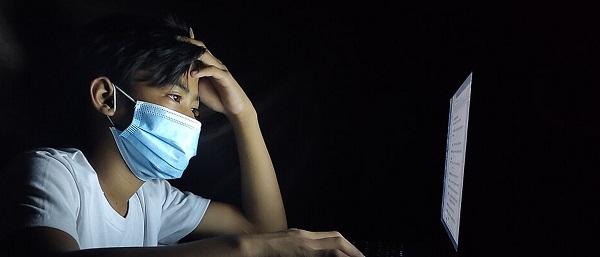

From the Daily Caller News Foundation
The FDA’s decision not to authorize COVID-19 vaccines for healthy children has drawn criticism. Some argue: If parents want the shot, why not let them get it for their kids? That argument misunderstands what FDA authorization means — and why it exists.
The FDA often approves drugs that carry risks or have imperfect evidence of effectiveness. This is a tradeoff we sometimes accept for people who are ill: when someone is already sick, the alternative is untreated disease. Vaccines are different. They are given to millions of healthy children. This requires a higher standard, not just evidence for safety and immune response, but clear, durable clinical effectiveness. Approval for optional use isn’t neutral; once the FDA authorizes a vaccine, it carries the full weight of institutional endorsement.
Measles provides an example for how the FDA approaches vaccine approvals. Before the measles vaccine was introduced in 1963, the U.S. saw 3 to 4 million infections, ~48,000 hospitalizations, ~1,000 cases of encephalitis, and 400-500 deaths each year. Infants bore the brunt of the most severe outcomes.
Dear Readers:
As a nonprofit, we are dependent on the generosity of our readers.
Please consider making a small donation of any amount here.
Thank you!
That created a natural instinct: why not vaccinate the youngest and most vulnerable? The initial measles rollout was to 9-month-olds, but within two years that timing was changed to children who were at least 1 year of age. This was not because younger babies were not at risk or that the vaccine was riskier for them, but because it just didn’t work well enough to justify a universal campaign.
The knowledge of the particular risk younger infants face has led to continued research on the effectiveness of measles vaccination in that group. A 2023 trial of the combined measles/mumps/rubella (MMR) vaccine in infants aged 5-7 months, and subsequent safety and immune studies in 2024 and 2025, produced consistent results—safety and the ability to generate antibodies were demonstrated, but a durable response and protection against hospitalization were not.
That is why the FDA does not approve MMR for routine use in healthy children younger than 12 months of age. It is also precisely why getting back to herd immunity for measles is so essential: the youngest infants can only be protected if the rest of us are immunized.
What’s the evidence for COVID-19 vaccination in infants and children? It generates robust antibodies, often higher than in adults. But clinical benefits are modest, short-lived, and inconsistent. It is nowhere near the level of proof U.S. regulators require before making a vaccine universally available to healthy kids.
Some argue that even if benefits are modest, parents and pediatricians should be free to choose. But FDA authorization is not about personal preference; it is a stamp of approval for more than 70 million healthy children. Statistical safety is not enough. At that scale, even rare risks mean real harm to real children. COVID-19 vaccines were originally authorized in the hope that immune responses would translate into population-level benefits. For healthy children, the initial optimism sparked by early encouraging signals has steadily given way to three years of disappointing clinical results.
The lessons from measles are clear: safe but minimally effective isn’t enough. We don’t authorize MMR for 5-month-olds, even to parents who might want their children to get it. COVID-19 vaccines for healthy children should be judged similarly. This is not because there is a lack of any benefit, but because it doesn’t rise to the level we use for other vaccines. Only if and when proof of clinical effectiveness becomes available should authorization be reconsidered. At this time, the FDA is right to say no.
Monique Yohanan, MD, MPH, is a senior fellow at Independent Women, a physician executive and healthcare innovation leader, and Chief Medical Officer at Adia Health.
COVID-19
The Persecution of Canada’s “Other” Freedom Convoy Truckers
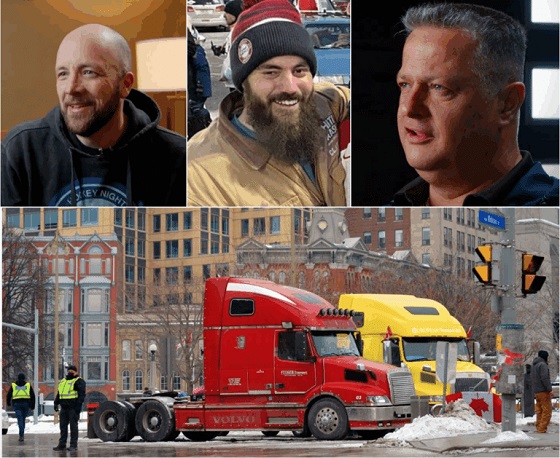
While thousands of serious criminal cases across Canada are dropped merely due to delays, many Convoy-related prosecutions on trivial charges continue more than three-and-a-half years later. The cases of Freedom Convoy truckers (left to right) Bern Bueckert, Clayton McAllister and Csaba Vizi (whose Volvo is shown at bottom) are still not fully resolved. (Sources of photos: (top left and right) screenshots from documentary Unacceptable?; (top middle) ThankYouTruckers.Substack; (bottom) Donna Laframboise)
On September 8, three and a half years after the 2022 Freedom Convoy departed Ottawa, and five long, stressful months after his trial actually ended, Robert Dinel walked out of court a free man.
Dinel, a Quebec heavy equipment operator who’d behaved entirely peacefully during the protest over Covid restrictions, had been charged with mischief and obstruction of police. Court proceedings were repeatedly delayed — four times alone just this year — until judge Matthew Webber of the Ontario Court of Justice finally stayed the charges on the grounds that Dinel’s Charter rights to a timely trial had been violated.
For Dinel, it was a relief. For Canadians concerned about freedom and justice, his legal ordeal was yet another example of a system gone off the rails.
Most Canadians are aware of the trials of convoy leaders Tamara Lich and Chris Barber, which ended in conviction; they are to be sentenced in October. Few may realize that many more protestors were charged, most for the relatively innocuous infraction of mischief, and have had their cases drag on and on through the courts for more than three years.
The record of Canada’s legal system clearly shows that mischief charges are routinely withdrawn before scarce and expensive court time is expended on relative trivialities. But when it comes to the truckers, the Crown attorneys at the Ottawa courthouse – employees of the Government of Ontario, not the federal government – appear to have lost all perspective. They are on a mission. The sheer intensity of the prosecution of Convoy members looks less like the fair administration of justice than revenge upon people who dared protest the arbitrary and oppressive measures of the Covid years.
The initial police crackdown itself was a mess. Those arrested were passed from police officer to police officer. Officials writing up the paperwork had no direct knowledge of what had actually transpired; extra charges appear to have been tacked on willy nilly. In Dinel’s case, the prosecution doesn’t even know the identity of the tactical officer who pointed a gun at his head and hauled him out of his vehicle on February 18, 2022.
In a police processing trailer four hours after his arrest, Dinel received a medical assessment from a paramedic. Seated and hand-cuffed throughout, the five-foot-three Dinel calmly and repeatedly told police he was in no fit state to be making decisions and that he wanted to speak to a lawyer. “I want to know what I’m signing,” he insisted. But the police officers, who outnumbered him ten-to-one, kept pushing him to sign an undertaking that he wouldn’t return to the protest area. The fact he never got his phone call – that he was denied his Charter right “to retain and instruct [legal] counsel without delay” – should have stopped this case in its tracks. The Crown chose to pursue it, anyway.
A week after Dinel’s mother died in July 2023, he suffered the first of four strokes. In December 2023, one occurred in the courtroom. “My whole face just seized up,” he recalls. “I had another stroke. My whole face drooped, then the judge freaked right out.” An ambulance was summoned and his trial was adjourned. “I hate court,” says Dinel. “It’s hard, you know. It’s stressful, it’s exhausting.” Rather than staying the charges on compassionate grounds, the prosecution continued, with Dinel accompanied by a service dog.
Nova Scotia trucker Guy Meister spent hours in the same paddy wagon as Dinel the day they were arrested. After travelling from his Nova Scotia home to Ottawa for court appearances more than a dozen times – at considerable expense – in May of this year Meister was found guilty of mischief, but not of obstructing police. In late July, he was sentenced to 20 hours of community service, six months’ probation, and ordered to pay a $100 victim surcharge.
The trial for Windsor, Ontario trucker Csaba Vizi began just this month, the same day Robert Dinel’s charges were stayed. Video broadcast around the world in February 2022 shows him being assaulted by multiple police officers after he’d exited his truck and knelt down in the snow with his hands behind his head. None of those officers were themselves charged following this violence. None were forced to raise tens of thousands in lawyers’ fees, as Vizi has. Even protesters who have endured the stress of a trial and been acquitted have still not always walked free and clear, because the Crown has often insisted on filing appeals. As a result, defence lawyers routinely advise Freedom Convoy protesters that their legal nightmare isn’t actually over until an additional 30 days have come and gone. In one instance, the Crown waited until the last afternoon of the last permissible day to file its appeal.
These are just a few examples of what’s been going on in Canada’s justice system, one already beset by long delays for cases involving far more serious crimes. Credible news reports suggest that the majority of criminal cases in Ontario aren’t even making it to trial, with sexual assault
charges dropped because of delays. Yet the Convoy prosecutions continue.
Many people insist Covid is over, that we should all move on. But the legal persecution of the truckers who bravely protested government overreach in the bitter winter of early 2022 is far from over.
Donna Laframboise is an independent journalist and photographer. A former vice-president of the Canadian Civil Liberties Association, she is the author of Thank You, Truckers! Canada’s Heroes & Those Who Helped Them.
The original, full-length version of this article was recently published in C2C Journal.
-
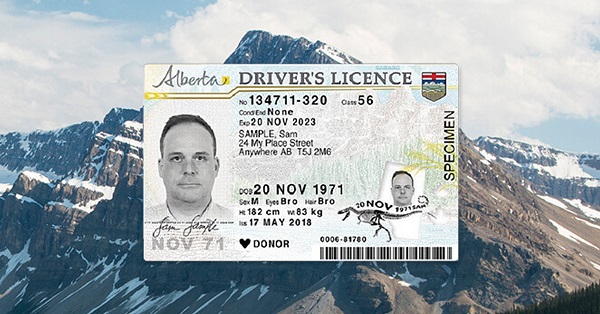
 Alberta2 days ago
Alberta2 days agoAlberta first to add citizenship to licenses
-

 Business2 days ago
Business2 days agoCarney government’s housing GST rebate doesn’t go far enough
-

 Alberta2 days ago
Alberta2 days agoBreak the Fences, Keep the Frontier
-

 Business2 days ago
Business2 days agoCarney’s Ethics Test: Opposition MP’s To Challenge Prime Minister’s Financial Ties to China
-

 Business2 days ago
Business2 days agoAttrition doesn’t go far enough, taxpayers need real cuts
-
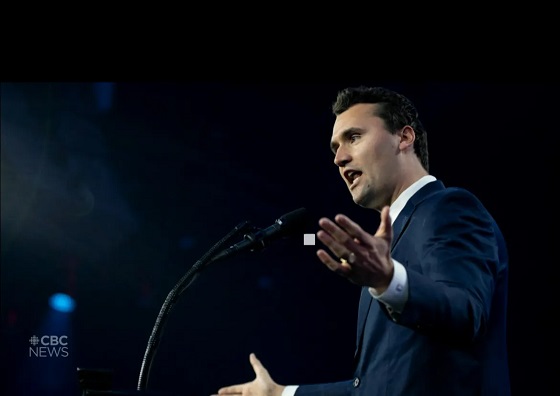
 Media2 days ago
Media2 days agoCancel culture wins ultimate victory as murder of Charlie Kirk ghoulishly celebrated by radical Left, media included
-

 Alberta2 days ago
Alberta2 days agoAlberta Education negotiations update: Minister Horner
-

 Opinion2 days ago
Opinion2 days agoRFK Jr. Reveals Unforgettable Details About Charlie Kirk in Emotional Tribute






